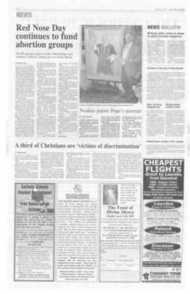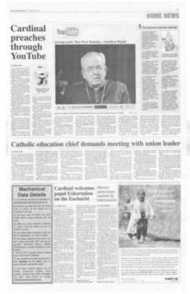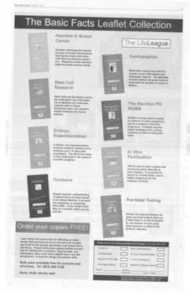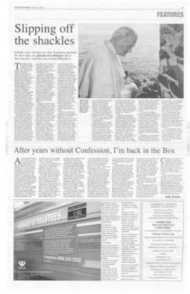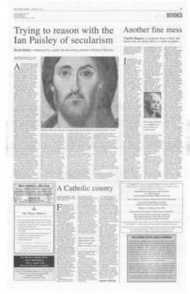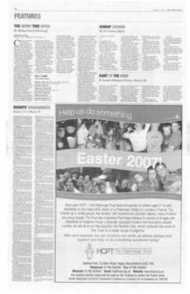Page 3, 23rd March 2007
Page 3

Report an error
Noticed an error on this page?If you've noticed an error in this article please click here to report it.
Tags
Share
Related articles
Happy 75th Birthday, Your Eminence
Bishop Roche Takes Over In Leeds
A Brighton Rock Needs Help
Cardinal Wins Apology For Fake Abuse Story
The Witchhunt Against Cardinal Cormac
Cardinal preaches through YouTube
BY FREDDY GRAY
HE WAS KNOWN as the "electric bishop" when in charge of Arundel and Brighton Diocese because of his propensity for preaching to his flock through a tape-recorder.
Now. Cardinal Cormac Murphy-O'Connor has found a new way of speaking his message where he is not.
The technologically astute Archbishop of Westminster can now be seen on YouTube, the hugely popular video sharing website, and iTunes, the digital media player.
For Catholic web surfers who are unfamiliar with these sites, the short film, in which His Eminence discusses the wonders of Lourdes, can also be downloaded from the archdiocese's website.
The Cardinal's decision to embrace the new media comes just days after Pope Benedict XVI urged the Church to take advantage of the opportunities offered by new technology.
Addressing the Pontifical Council for Social Communications earlier this month, Benedict XVI spoke of the benefits of greater access to quality entertainment, information and educational opportunities.
He urged Catholic media workers "to safeguard the common good, to uphold the truth, to protect individual human dignity and promote respect for the needs of the family".
"Much of what is transmitted in various forms to the homes of millions of families around the world is destructive," he added.
Despite its reputation as a "slow-moving beast", the Catholic Church has kept up with the latest trends in webbased media.
The Society of Jesus was quick to see the potential of podcasting, which allows internet surfers to download video or audio files.
La Civilta Cattotica. the Jesuit magazine, encouraged priests to start "Godcasting" through the web by becoming "podpreachers". However, senior Catholic figures feel the Church must go further to evangelise through technology in the new media age.
American Archbishop John Foley. president of the Pontifical Council for Social Communications, said that Catholicism had a duty to spread its message as widely as possible. The problem, he added. was that the Church "must compete with thousands of other messages messages that perhaps appear immediately more appealing or more tempting".
Sister Judith Zoebelein, another American and a Franciscan Sister of the Eucharist who works in the Vatican's internet office, agreed that the Church must expand its presence on the interact. The Vatican website. she announced, is running a trial e-learning site to teach people about the faith through the internet.
"Perhaps the biggest reason for choosing e-learning is that young adults today live and learn on the internet more than any other particular place," she said. The faithful, she suggested. should draw others in through a "virtual" experience of faith into something more real.
"The anonymity of the interact must at some point lead to the desire and opportunity for an actual human encounter," she said.
Sister Zoebelein said that the Vatican website had succeeded in enabling Catholics to connect with each other and the Vatican by accessing documents and even sending e-mail greetings to the Pope. The hope, she added, is to use the "virtual" community created through the interne "to nourish the actual community" and to promote a desire to participate in parish life.
Jesuit Fr Federico Lombardi, director of the Vatican press office and television centre, suggested the Holy See could use the new media to publicise better the Pope's thoughts and the position of the Church in the Muslim and Arab world.
He said the Vatican might also form a group of consultants to evaluate requests for interviews with the Pope.
blog comments powered by Disqus



